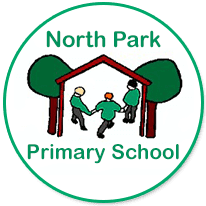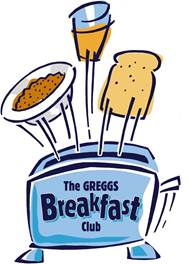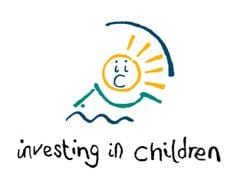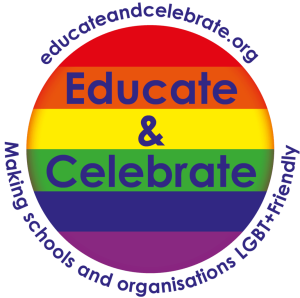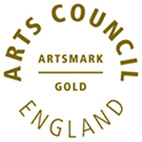Promoting British Values
The development of pupils’ spiritual, moral, social and cultural development (SMSC) and promotion of British Values is part of the core function of schools, longside academic achievement. This contributes to preparing pupils for later life so they can become well-rounded adults, who are able to contribute positively to the British Society and the world they live in.
We aim to encourage and develop individuals who are confident, respectful and tolerant; who are able to make individual choices and act responsibly; who look outwards towards the wider society and the world in which they live.
The following have been categorised by the Department of Education as the broad values attributed to being British:
- Democracy
- The rule of law
- Individual liberty
- Mutual respect and tolerance of those with different faiths and beliefs
How do we promote British Values at North Park Primary?
At North Park Primary School we aim to reflect British Values in all that we do.
British values are promoted, for all children, through:
- the policies and practices in school, with particular links to the Equality Act
- the curriculum we offer and the activities that form part of this
- the way we manage behaviour and learning
- the wide range of additional opportunities and enrichment we offer the children during their time at school
Democracy
Pupils should understand:
- how citizens can influence decision making through democratic processes.
- that there is a separation of power between the executive and the judiciary, and that while some public bodies such as the police and the army can be held to account through Parliament, others such as the courts maintain independence
- why democracy is perceived within England as the fairest form of political organisation;
- why, taking part in democracy is a good thing
- why law making on the basis of representation in Parliament is seen as better than alternatives.
We promote Democracy throughout the school:
- When appropriate to age children will have the opportunity to learn about the advantages and disadvantages of democracy, and how democracy and the
law works in Britain; in PSHCE week Democracy is explored in depth. - Children have the opportunity to work in groups, participate in activities and express opinions and ideas, respectfully listening and agreeing/disagreeing;
they regularly take part in discussion and make choices, from the earliest ages. - We ensure pupils have a voice and an opportunity to vote. For example, the election of student council representatives takes place using pupil votes.
- Pupils have the opportunity to have their voices heard through our very active School Council and through regular pupil questionnaires, discussion with teachers and to senior leaders about aspects of their learning and life in school.
- Children have the opportunity to vote on matters of concern to them within classes and though school council, etc.
- We hold mock elections; children have opportunities to argue and debate, then make choices through voting
The Rule of Law
Pupils should have:
- an appreciation that living under the rule of law protects individual citizens and is essential for their wellbeing and safety
- an understanding that the freedom to hold other faiths and beliefs is protected in law;
We promote an understanding of the rule of law though our school ethos and culture.
- As age appropriate pupils learn about parliament, role of MPs and councillors
- Find out about laws and how they have changed, e.g. Suggragettes, etc; learn about law related to equalities
- Learn about the importance of school rules and the difference between these and laws; school holds a PSHCE week where rules and laws are explored in
depth. - Explore difference between right and wrong, fair and unfair; understand how laws protect the vulnerable and promote right and fair activity and behaviour
- Explore differences in laws in different countries
- Find out about how state and religious laws can differ, as appropriate
- Engage with local community police service
Individual Liberty
Pupils should develop:
- an understanding of what is meant by liberty, freedom and human rights, what that might mean for individuals, groups and societies
- knowledge and understanding of the history behind current liberty and freedoms, including specific campaigners for freedom
- an understanding that the freedom to hold other faiths and beliefs is protected in law
Individual liberty is promoted through the school’s ethos and culture:
- School holds the Unicef RRS award; rights and responsibilities underpin the work we do and are at the heart of school policy; children learn about this
through PSHCE lessons and Family Group activity. - Children are encouraged to formulate and express opinions on a wide range of issues, with reference to individual freedom, including challenging prejudice
and homophobia. Issues about relationships and friendship are regularly explored. - Children will learn about campaigns and campaigners
- Children will explore equality and how this is reflected in law
Mutual respect and tolerance of those with different faiths and beliefs
Pupils should demonstrate:
- an acceptance that people having different faiths or beliefs to oneself (or having none) should be accepted and tolerated, and should not be the cause of
prejudicial or discriminatory behaviour - an understanding of the importance of identifying and combating discrimination.
This aspect of British values is underpinned by the Equality Act and the Equality Policy in school; this underpins all policies and practices in schools.
- Learn to respect each other, share opinions and celebrate differences in school
- In RE school uses a range of activities to promote understanding of a wide understanding of faiths and beliefs, recognising similarities and differences
- Visits and visitors from a wide range of cultural and spiritual communities and backgrounds. Offering diversity in beliefs and practices as a first-hand
experience; - Develop a wider understanding of different cultures – school holds a Multicultural week every year
- Hold events linked to equality and diversity, celebrating differences and equality; link to national and international days tp promote respect, peace, understanding, e.g. Holocaust Day, Remembrance Day, Black History Month, etc.
- Link to work across all areas of the curriculum exploring respect and tolerance
- Use collective worship to reflect on a range of faiths and beliefs
